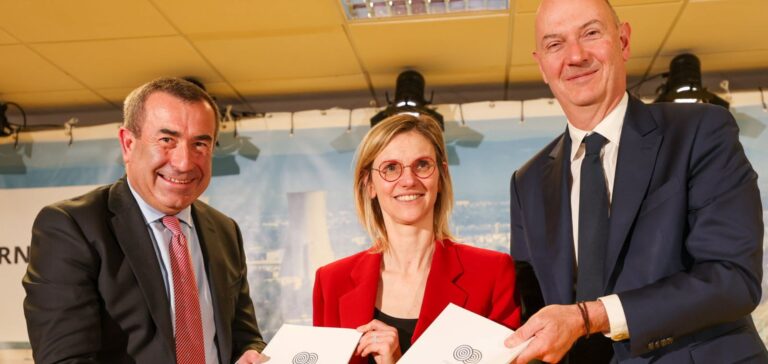The Groupement des Industriels Français de l’Énergie Nucléaire (GIFEN) presented the “MATCH” program to the Ministers of Energy Transition and Industry, Agnès Pannier-Runacher and Roland Lescure, during a visit to the Orano-Tricastin industrial site.
This study, commissioned in January 2023, aimed to assess the needs and challenges for the revival of the nuclear industry desired by the President of the Republic, Emmanuel Macron.
Continue and expand efforts
The “MATCH” program, which has involved some 100 companies in the industry, highlights the need to continue and expand operational performance plans, as well as the responsibility of operators in supporting the growth of suppliers’ resources, in a partnership approach.
The ministers asked GIFEN to complete this study by integrating the issues of nuclear exports in Europe and the prospect of building nuclear reactors in France and small modular reactors, beyond the first 6 ERP2 reactors. They also asked to update this study annually and to propose a translation of the sector’s commitments in terms of recruitment and investments to meet the needs identified.
GIFEN must become a key player in the nuclear revival
GIFEN will also have to become the industrial crossroads and the trusted third party of reference for all the companies in the sector in order to contribute to the success of the nuclear revival. The ministers also launched a major competition to promote the attractiveness of nuclear professions, which will award the “Nuclear Ambassador” label to the stakeholders in the industry who do the most to present nuclear professions to students.
Finally, the two ministers will bring together the stakeholders in the financing of the nuclear industry to discuss the financial issues involved in strengthening the value chains and industrial capacities in the jobs most in demand.






















